Booing your own anthem - Hong Kong and a dilemma
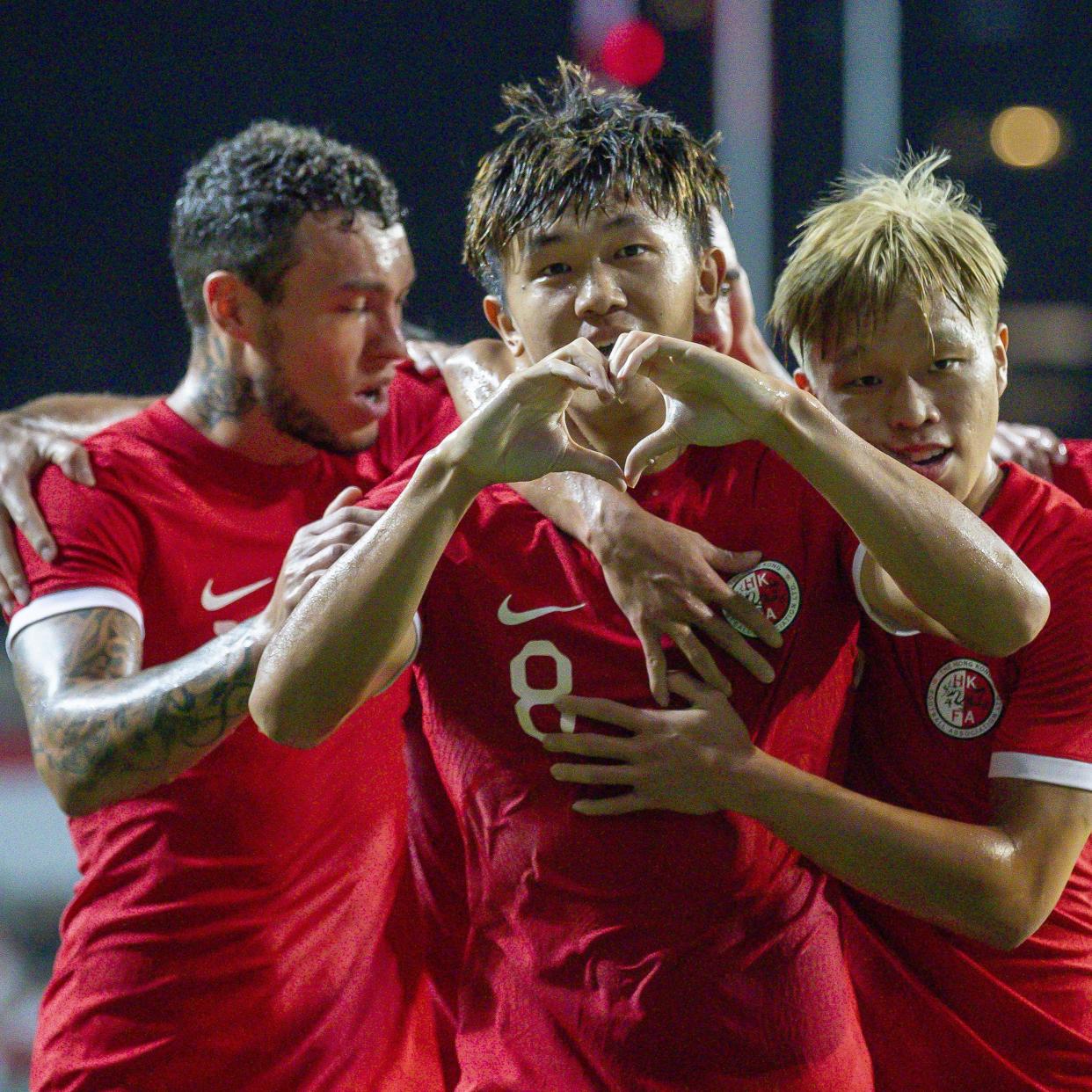
On 1 January Hong Kong beat China in a football game for the first time in almost 30 years.
Actually, the official result of the pre-Asian Cup warm-up was Hong Kong, China 2-1 China.
The name of Hong Kong’s team changed in 2023 and, amid increasing control of the territory from Beijing, has led to speculation that the days of an independent football scene in the former British colony are numbered.
"It is inevitable that at some stage in the future the Hong Kong Football Association [HKFA] will cease to exist as an independent member of Fifa," Mark Sutcliffe, the HKFA chairman from 2012 to 2018, tells BBC Sport.
"It's just a matter of time."
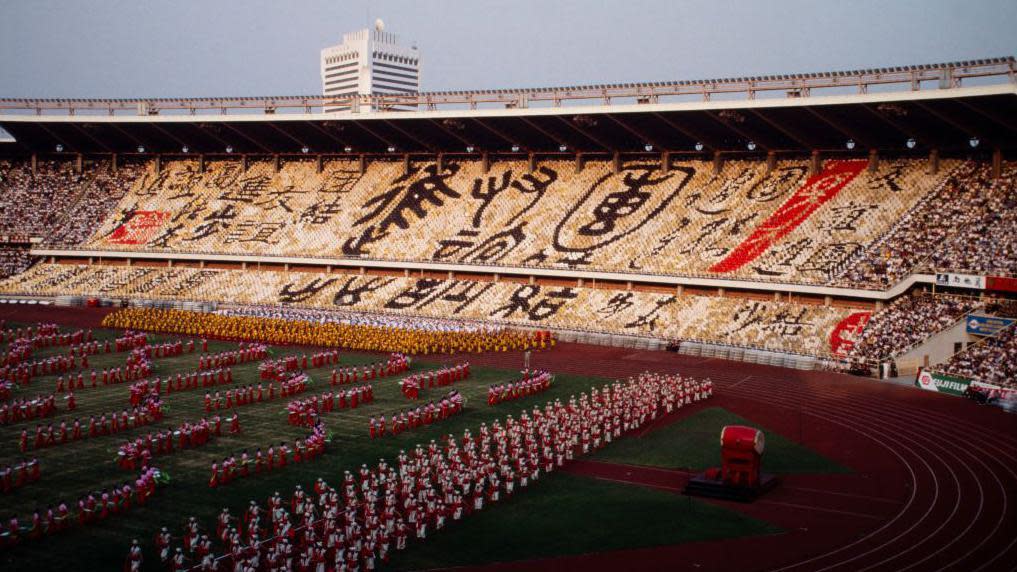
Hong Kong’s latest win over China is not their greatest.
That came in May 1985 when a 2-1 victory in World Cup qualifying shocked 80,000 fans at the Beijing Workers' Stadium.
"All football fans in Hong Kong know about that, even though many of us were not even born then," says local fan Kei Leung.
"It was one of the best nights in our history."
It is remembered less fondly in China, where the defeat provoked a riot and the resignation of the head coach and the Chinese Football Association president.
Before that match Hong Kong, then still a British colony, sang God Save the Queen as their anthem.
That changed in 1997 when the UK handed over control to Beijing. As part of the agreement, China promised to maintain Hong Kong’s relative freedoms and status as a "Special Administrative Region" under the "one country, two systems" approach for the next 50 years.
In the meantime, football has become an arena in which Hong Kong’s liberal democratic history and the authoritarian traditions of the mainland have clashed.
As Beijing’s control tightened, Hong Kong’s games became one of the few avenues available to locals to express their feelings.
"Football was a natural choice for many," says Leung. "It is more important than other sports."
Football’s importance became apparent after the 2014 Umbrella Movement. A series of pro-democratic protests in the financial hub, the movement acquired the name after protestors used umbrellas to shield themselves from tear gas and pepper spray used by police.
The protests had been prompted by Beijing’s decision to only allow pre-approved candidates to take part in the 2017 election to lead Hong Kong.
In 2015 Hong Kong hosted China in a qualifier for the 2018 World Cup and some home fans booed their own anthem, now shared with the opposition, called The March of the Volunteers.
Some held up signs which read "Hong Kong is not China". The local association was fined by Fifa.
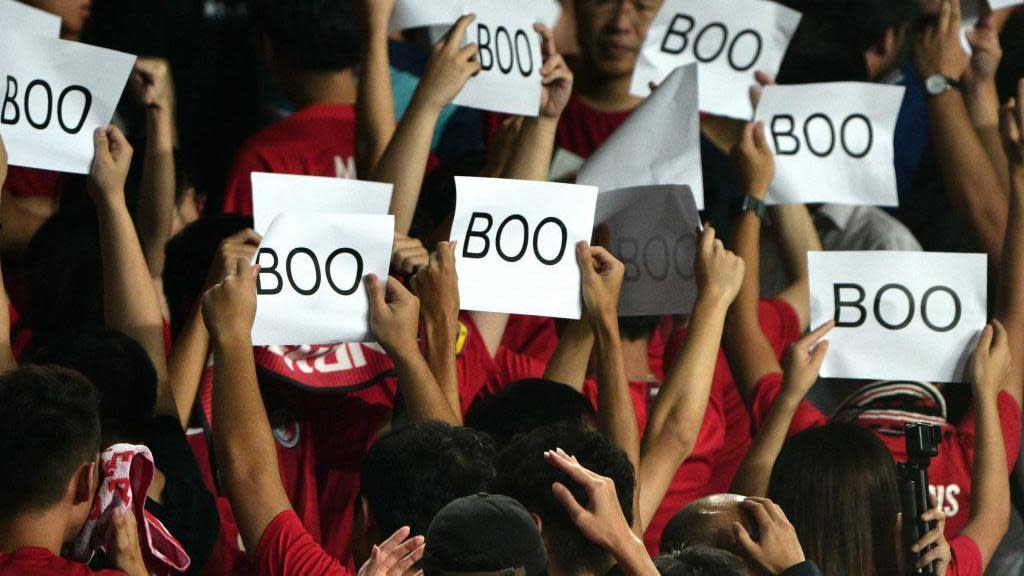
Sutcliffe felt that not all of those in attendance were football fans.
"Undoubtedly, international matches provided a platform for Hong Kong residents to voice their frustrations," says Sutcliffe.
"The booing of the national anthem provided great publicity for them. Attendances went up and many people came to matches who under normal circumstances would never have gone to a football match."
Sutcliffe cannot recall any complaints from Beijing.
"We were certainly put under pressure by the Hong Kong SAR [Special Administrative Region] Government to do everything we could to stop it," he says.
"We ran publicity campaigns. We introduced more stringent security at matches, including searches and confiscation of banners. We couldn't stop it altogether and the upshot was that we were fined by Fifa several times."
In 2020 Hong Kong’s legislature also took measures, passing a bill that criminalised disrespect to the anthem - with a maximum prison sentence of three years.
Even so, in the first home game open to the public since the introduction of the new law in September 2022, the national anthem was again booed by sections of the crowd before kick-off against Myanmar.
Three months later, the 83 sporting associations in Hong Kong were told that they had to add "China" to their names or risk losing funding. About three-quarters had not previously done so.
Football fans flocked to buy the last batch of shirts that still had the former Hong Kong logo, before the word "China" was added to the dragon crest.
Sutcliffe tried to strike the right balance in accommodating China’s requests while maintaining some distance and a separate identity
"It was kind of an unwritten rule not to get too close in case Fifa decided to take away the individual member status," he says.
"There was no sharing of resources or knowledge or anything of that nature.
"Indeed, we had a closer relationship with Japan, who were much more altruistic and saw it as their role to mentor smaller member associations and improve football across Asia."
The Chinese Super League (CSL) boom briefly threatened to realign those relationships.
At the start of 2010s Chinese top-flight clubs started spending huge amounts on world-famous players such as Nicolas Anelka, Didier Drogba, Hulk and Carlos Tevez, while coaches such as Marcello Lippi, Luiz Felipe Scolari and Fabio Capello arrived.
Attendances rose to become the biggest in Asia and standards also increased. Guangzhou Evergrande, just an hour’s high-speed train ride away from Hong Kong, became China’s first Asian Champions League winners in 2013 and triumphed again in 2015.
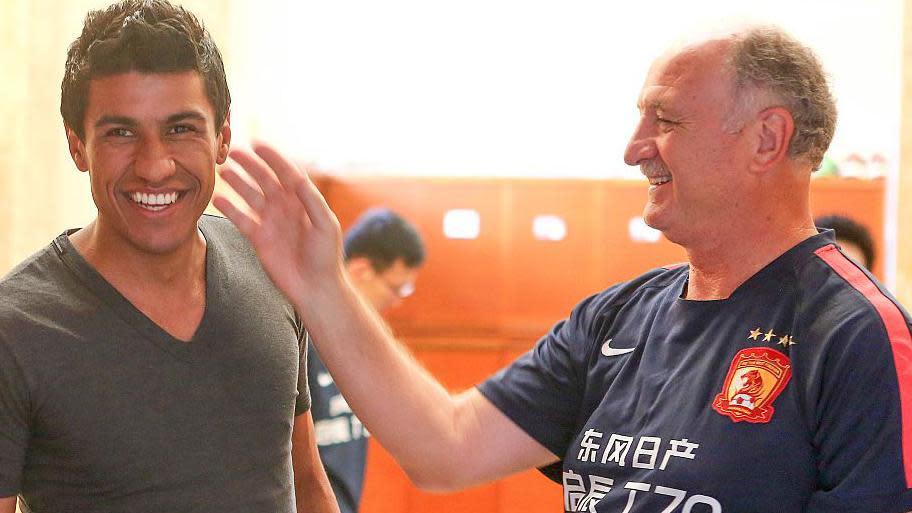
In Hong Kong the possibility of sending a team to compete in the CSL was raised, with the hope it would drive up standards and revenues.
Ultimately the boom did not last. Financial problems in Chinese football, exacerbated by the global pandemic, led to a number of clubs ceasing operations.
But the idea lives on.
The current leadership of the HKFA, who did not respond to a request for an interview, still see China as an opportunity.
"I do believe that is our direction," HKFA vice-president Eric Fok Kai-shan said in 2023. "Everyone is looking at the China market. In terms of football, we want to make it sustainable in how you make commercial value.
"There are plenty of examples of teams being based in one place and playing in leagues from another, with Welsh clubs Cardiff City, Swansea City and Wrexham all part of the English pyramid."
National team coach Jorn Andersen has also welcomed the prospect of Hong Kong’s best clubs competing against Chinese opposition.
Under the Norwegian, Hong Kong qualified for the Asian Cup in January for the first time since 1968, finishing bottom of a group containing Iran, the United Arab Emirates and Palestine. China did not fare much better, finishing third in their group and falling at the first hurdle without scoring a goal.
Long-suffering fans of China were impressed by Hong Kong's efforts.
"On social media, mainland citizens praised Hong Kong’s recent success and even the fan turnout in Qatar was admired," said Tobias Zuser, an academic and co-editor of Sport in Hong Kong: Culture, Identity and Policy.
"Some even think that the China team could learn from Hong Kong."
For the HKFA, the dilemma remains: if it is to remain a separate entity with a separate team, it will have to make itself useful to Beijing.
The vote it holds inside the Asian Football Confederation and Fifa is one thing in its favour. But its existence is at odds with China’s centralised system of control.
In February almost 40,000 people bought tickets to watch Inter Miami take on a Hong Kong League select XI. When star draw Lionel Messi, who was nursing a hamstring strain, remained on the Inter Miami bench, the crowd chanted for a refund before jeering a post-match speech from Inter Miami owner and one-time Chinese Super League ambassador David Beckham.
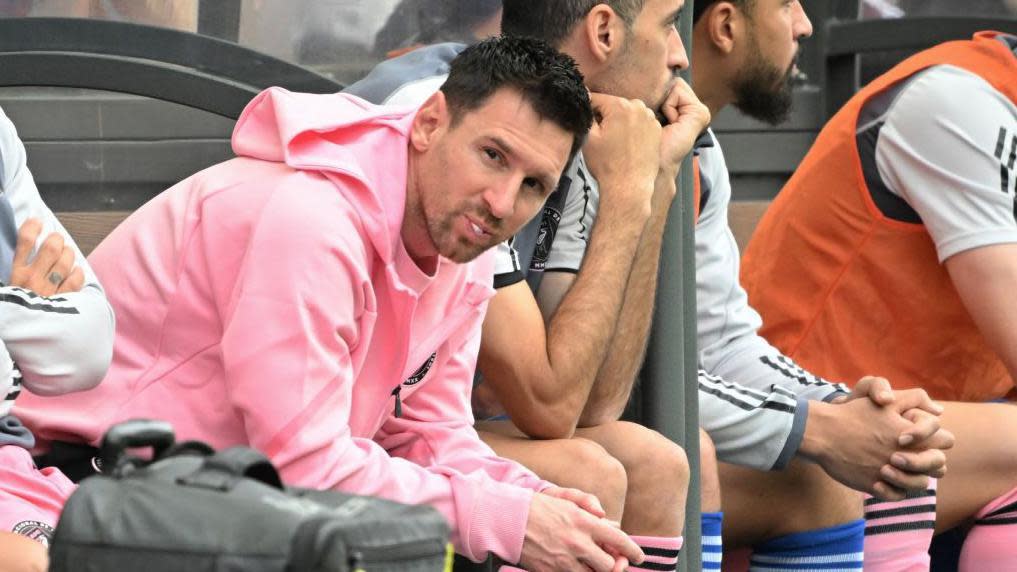
"Politically, the government in Beijing essentially sees Hong Kong as part of the mainland," says Simon Chadwick, professor of sport and geopolitical economy at Skema Business School in France.
"If there is any controversy, such as the recent Messi episode, then China will want to avoid losing face and will surely move to control the incidence of such issues.
"If football in Hong Kong is to have any longevity, it would be wise to depoliticise itself and establish a set of values that are seen as pro-social and non-threatening.
"At best, football in Hong Kong can look forward to a future of neutrality. At worst, it may face extinction as it becomes subsumed into mainland structures and governance."
Zuser does not believe that Hong Kong’s transformation into Hong Kong, China means any major change is imminent.
"Hong Kong has participated at the Olympic Games as Hong Kong, China since 1997, so the recent changes across other national sports associations are more an act of symbolic streamlining," he says.
"It doesn’t really change much how people support the teams or think of them."
Sutcliffe, however, thinks the addition of a single word may be the writing on the wall.
"I wasn't at all surprised by the name change," he says.
"It exemplifies what I was saying about it only being a matter of time. It's part of the transition to assimilation."
